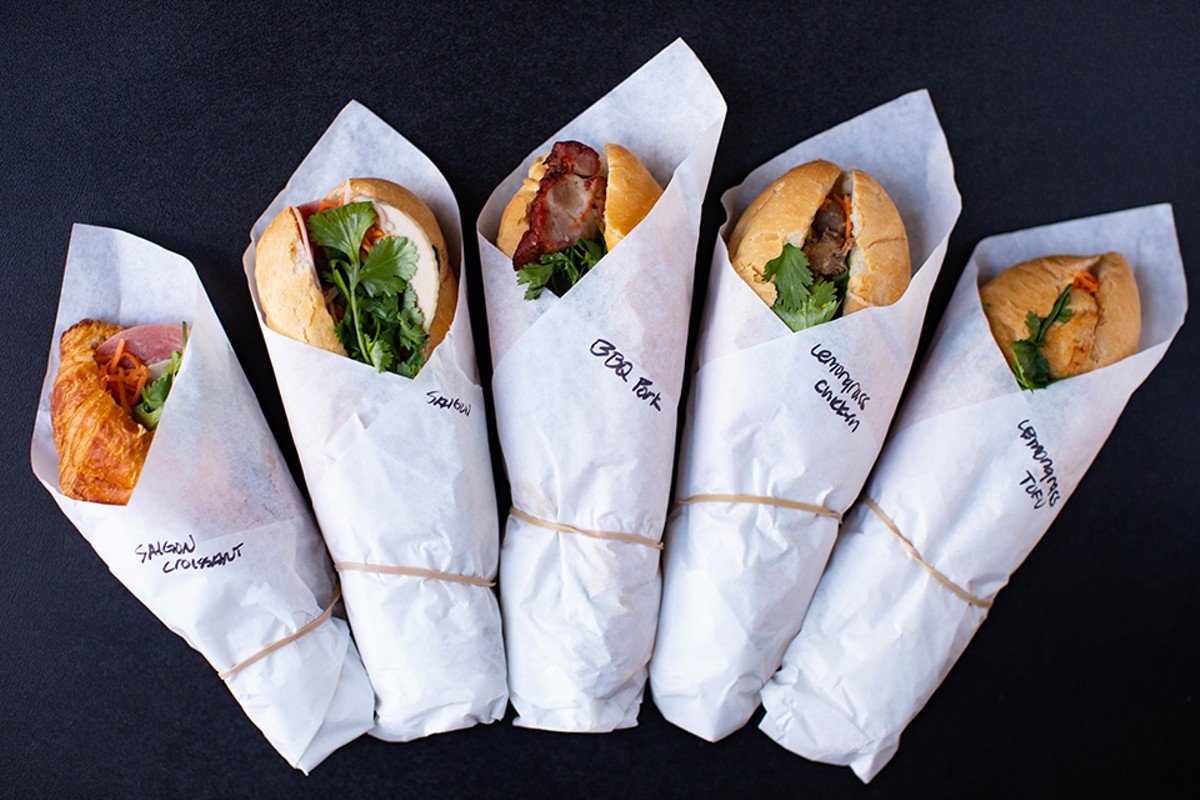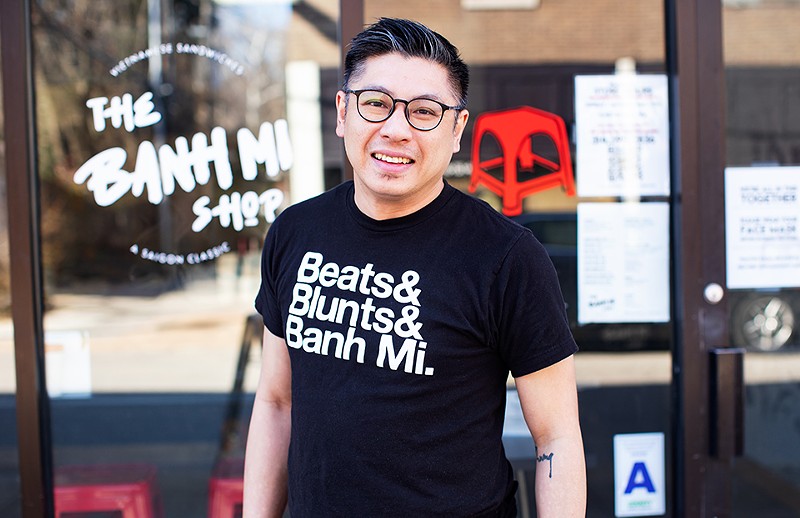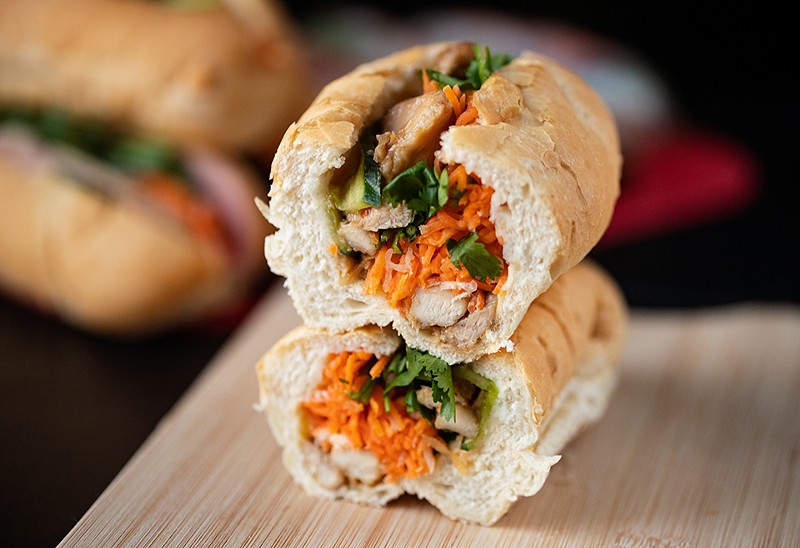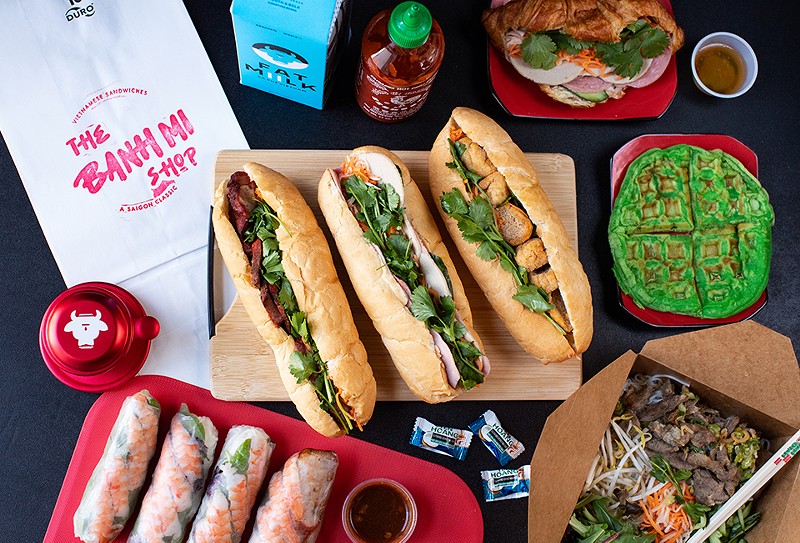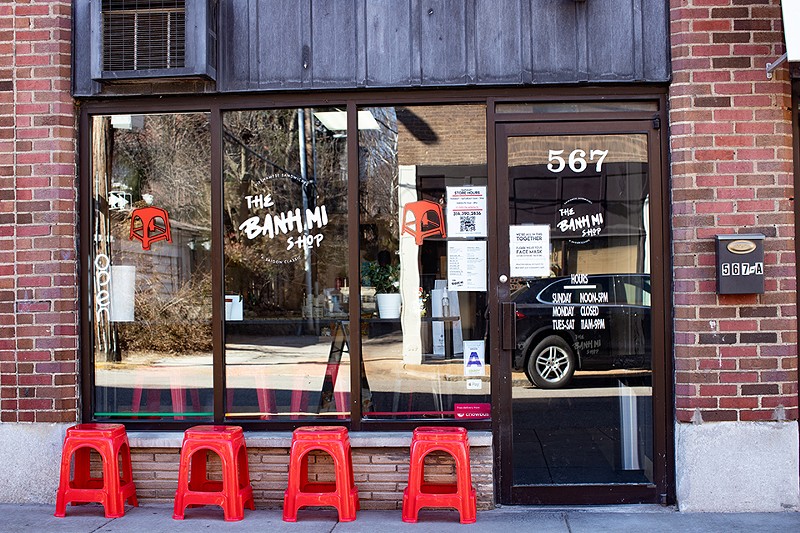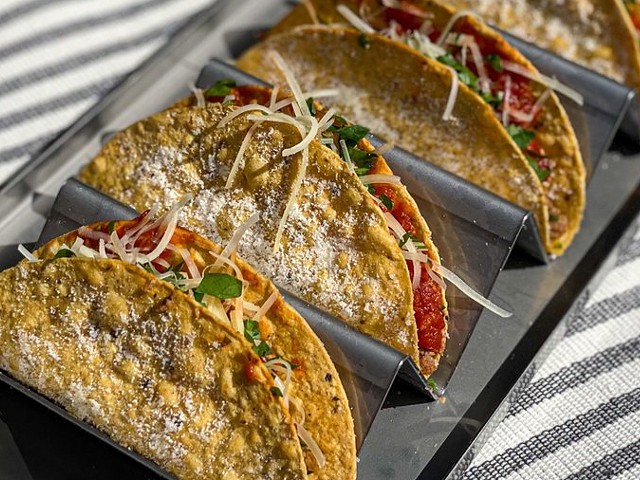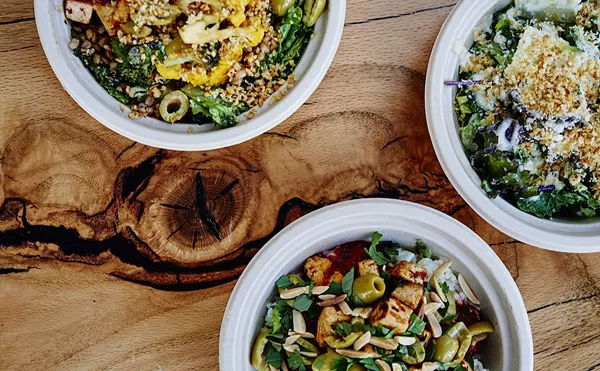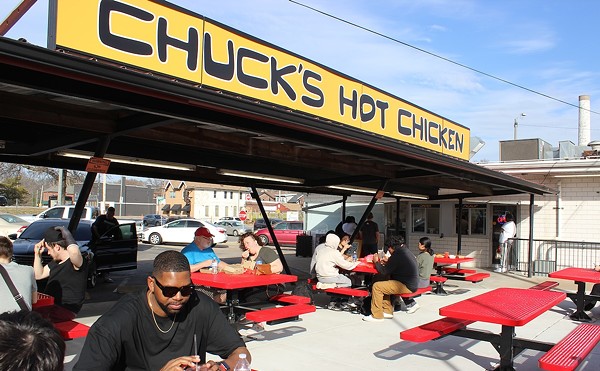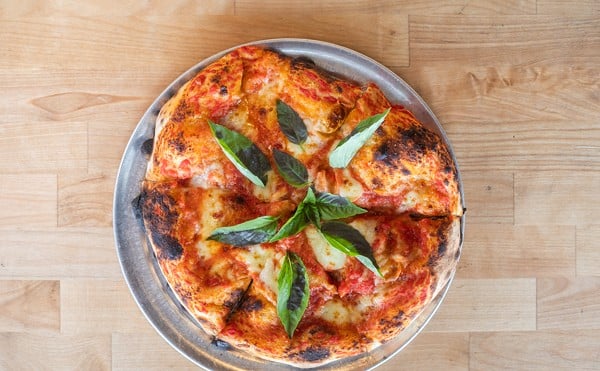Growing up, Jimmy Trinh ate banh mi almost every day. His parents, Vietnamese immigrants who also owned a restaurant, made sure that his lunchbox was always packed with pate-stuffed and pickled-vegetable-adorned baguettes before they sent him off to school each morning. Sometimes, they were topped with his mom's fragrant lemongrass chicken or leftover beef stew they'd had the night before — a meal that, by today's standards, would make him the envy of every little gourmand in the cafeteria.
He hated it.
Trinh laughs when he recalls unwrapping his sandwich and being perpetually disappointed that it wasn't bologna on white bread, remembering a desire for American-style processed meat that had little to do with his food's taste and more to do with wanting to fit in. However, that negative perception of his family's cuisine would change after Trinh graduated from high school and took what was supposed to be a three-week trip to Vietnam — one that turned into a yearlong sojourn into the food of the homeland he left when he was a baby. There, he gravitated to the banh mi and developed a passion for the sandwich that he hasn't since shook.
After returning to the United States from his trip, Trinh was determined to open a banh mi shop of his own, even as his parents attempted to dissuade him. As he saw it, the food business was in his blood, having grown up sleeping on the rice bags at his parents' restaurant. Though his mom and dad hoped that experience — and watching them work seventeen-hour days — would persuade him to take another path, Trinh jumped into the industry at the now-shuttered Tani Sushi Bistro, where he found success for a decade as its sushi chef and general manager.
Trinh left Tani in late 2019, determined to make his dreams of opening a banh-mi-focused restaurant a reality.
After searching neighborhoods throughout the St. Louis area, he found the Delmar Loop to be the perfect fit for the fast-casual concept he wanted to run and secured a spot on Melville in a small storefront that was most recently the Indian restaurant Taj Mahal. He freshened up the space with a coat of soothing gray paint, black-and-white photographs of Vietnam and some bright red stools (a nod to the typical street-food stall seating he noticed throughout southeast Asia), then opened the doors to the Banh Mi Shop on February 25, 2020, prepared to shake hands with passersby and welcome guests into his restaurant.
What he wasn't prepared for was a global pandemic. As Trinh explains, his vision for the Banh Mi Shop was of an old-school, mom-and-pop-style quick-service spot where he would get to know his guests through in-person interactions. He didn't have a phone or a website — he didn't want them. Instead he hoped his restaurant would be a place that people would wander into and learn about by word of mouth.
For a few weeks, that's exactly what he had. Business was robust, and Trinh was busy but settling into the rhythm of running the shop. When the COVID-19 pandemic hit St. Louis, his world was turned upside down, and, like every other restaurateur in town, he had to quickly adapt. He set up an online ordering system, got a phone and readied himself to serve his guests the food he was so proud of, even if he had to do so differently than he'd intended.
The outside observer would have no clue that the Banh Mi Shop, in its current form, was not how it was originally intended. Trinh absolutely nails the takeout experience this moment in time calls for, beginning with his seamless online ordering system. Clear, and with every option and modification laid out so that the simple click of a button can customize your order, it's a pleasant ordering experience that puts you at ease, before you even get to the restaurant, that he's going to get things right. That feeling is confirmed by his equally user-friendly curbside pickup experience, the Banh Mi Shop's only option for grabbing its food at this time. When you order online, the platform prompts you to enter in your vehicle information so that, when you pull up to the designated pickup point, Trinh can quickly get your order to you. On my visits, he was at my car window for an initial greeting within a minute, and I had my food in less than five.
Trinh is equally thoughtful about packaging, presenting his food as if it is a special gift to be unwrapped and enjoyed, rather than simply torn into — and when you bite into it, you realize that this is indeed the case. His Vietnamese croissant is wrapped up like a gorgeous bouquet of buttery pastry, head cheese, pate, ham, housemade aioli and pickled vegetables. He leaves the top open so the cone-shaped sandwich can be enjoyed on the go without the impossibly buttery croissant's flaky layers crumbling all over the place. It's as carefully thought out as it is delicious.
The restaurant's namesake sandwiches are also well packaged for takeout. Instead of simply wrapping them in butcher paper secured with tape, he forms the paper so that the top is open and places a rubber band around the middle, so that his guests can comfortably eat while walking down the street. It's a nice touch, considering how perfectly flaky the bread is. Trinh worked with Vitale's Bakery to develop a baguette that is soft and chewy in the center and encrusted with crumbly golden layers on the exterior. It's a wonderful canvas for such fillings as savory, soy-glazed grilled beef, which lights up the back of the palate with just a whisper of heat, or his mom's special lemongrass chicken, its floral and warmly spiced rub a delightfully perfumed accent to pieces of succulent chicken thigh. The restaurant's signature sandwich, the "Saigon Classic," should be the standard by which other banh mi are judged. Head cheese, pate and ham are slicked with creamy aioli; piquant pickled carrots, daikon and jalapeno cut through the richness like a built-in Wet-Nap for your mouth.
Though sandwiches were the inspiration for the Banh Mi Shop, Trinh hits the mark with other dishes as well. His noodle bowls are just as well executed for takeout as the sandwiches, with vegetables and noodles layered in the to-go box in a deconstructed fashion so that you can assemble it when you are ready to eat.
Curry chicken is rubbed in warm but not overbearing spices, and the barbecue pork version had just a suggestion of lemongrass. Both were served with a funky and sharp sauce made with citrus, lime and fish sauce that is served separately in a to-go ramekin so that it doesn't spill out everywhere. His knack for details is matched only by his skill in cooking.
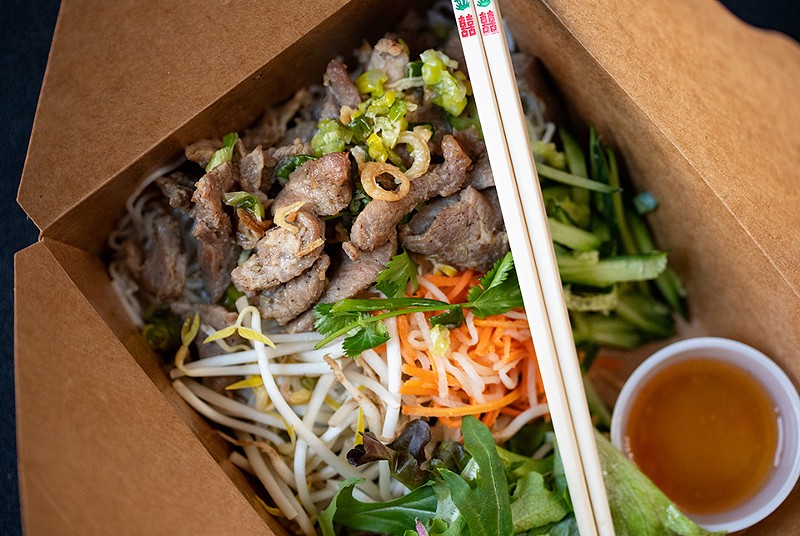
Spring rolls, tailor-made to be handheld, are another hit. The rolls are so massive and overstuffed with jumbo shrimp and barbecue pork that they are almost bulging out of their rice paper wrapper. The accompanying sauce — a hoisin and peanut concoction — hits the perfect balance of sweet and savory, with the peanut offering more of an undertone than taking over.
Trinh is frank about the perils of opening the Banh Mi Shop during the pandemic. Though he has social media tools at his disposal, the whole point of the restaurant was to be a word-of-mouth place that students and Loop pedestrians could stumble upon. He had visions of standing at the open door, engaging with people as they passed by and encouraging them to wander inside where they might chat as they waited for him to prepare their food. He laughs when he thinks about the year, saying that he is almost done crying himself to sleep at night. Hopefully, that will get better. The only tears that should be shed at the Banh Mi Shop are ones of joy at that stunning croissant.

